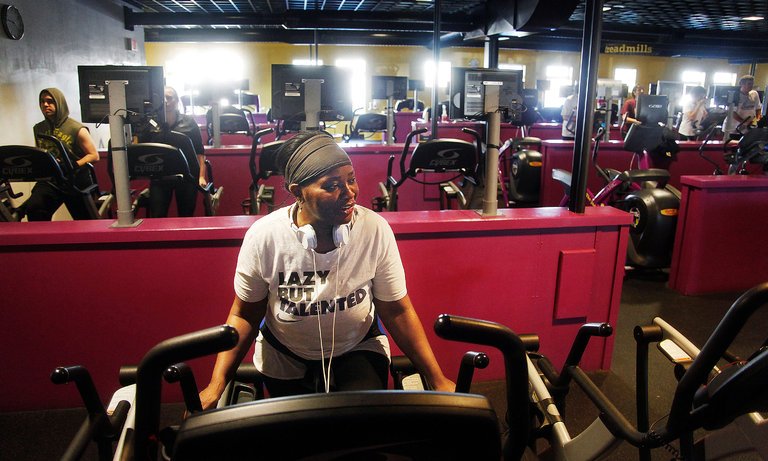
By TARA HAELLE
Most New Year’s resolutions involve improving your health or happiness. One key to achieving your resolutions is picking specific, realistically achievable and measurable goals. But beyond those basics, what should you do differently? After all, just “living healthier” feels overwhelming.
You don’t need fad diets, supplements, fancy workouts or lots of time or money to improve your health. Instead, focus on eight specific behaviors you’ve heard about — but probably underestimated. A new year, and a fresh start, is the perfect time to try.
“Setting goals with behaviors is a much wiser and more useful plan than ‘I want more or less of that,’” said Dr. Yoni Freedhoff, medical director of the Bariatric Medical Institute and an assistant professor of family medicine at the University of Ottawa in Ontario.
That means building habits instead of worrying about willpower, explained Dr. R. Todd Hurst, center director for cardiovascular health at Banner University Medical Center’s Phoenix Heart Institute in Arizona.
“When you make it a habit, you don’t have to think about it anymore,” Dr. Hurst said. “It’s like compound interest; you get the magic of time in your favor.”
The experts we spoke to disagreed on which comes first, but all agreed physical activity and sleep are the two most important components of good health.
“Physical activity is almost magical in its ability to improve quality of life,” Dr. Freedhoff said. It reduces risks of nearly every physical and mental condition there is. “If you can only do one thing in terms of improving your diet or fitness, I’d improve fitness first.”
It doesn’t need to be fancy, long or boring. Ten-minute blocks of playing with your kids, dancing or even taking the stairs makes a difference.
“What sinks a lot of people’s efforts is they take on more than they can do, find it’s impossible to maintain and then quit,” Dr. Freedhoff said. “The best activity is the one you enjoy the most and can see yourself continuing the most.”
Dr. M. James Lenhard, medical director of Christiana Care Health System’s Diabetes & Metabolic Diseases Center in Wilmington, Del., agreed that making it fun is paramount.
“Some people like to chop wood, others like walking, others like peeling vegetables,” Dr. Lenhard said. “I don’t care what it is, find something you really like so you can stick with it.”
And don’t get discouraged if you fall off the wagon.
“You’ll have good weeks and bad weeks,” Dr. Freedhoff said. “Do as much as often as you can enjoy. Some is good, more is better, everything counts.”
Get enough sleep.
One third of Americans don’t get enough sleep, but it’s impossible to overstate how essential sleep is to good health. It affects your immune system, hormones, appetite, weight, thinking, energy, concentration, temper, mood … even life expectancy. Luckily, there are ways to get a better night’s sleep.
Consider the effects of poor sleep on mental health: “People who have impaired sleep or insomnia symptoms are significantly more likely to develop clinical depression,” said Dr. Britney Blair, a licensed clinical psychologist and adjunct clinical faculty at Stanford University. If you are coping with depression and impaired sleep, you are much more likely to have thoughts of suicide. In fact, several studies have shown how justtreating sleep problems in those with depression can improve the depression symptoms too, she said.
How much sleep each person specifically needs varies — “it’s as unique as your fingerprint,” Dr. Blair said — but it ranges from seven to nine hours for most people. But quality matters too. If you’re feeling tired or having disrupted sleep, find out if you have a sleep disorder and treat it if you do.
Sleep apnea is an extremely underdiagnosed condition that increases the risk of obesity, diabetes, heart disease and early death, such as Carrie Fisher’s. Take the STOP-BANG questionnaire to see if you have the symptoms. For those with insomnia, a specific cognitive behavioral therapy is the first-line treatment. Following good “sleep hygiene habits” can actually make insomnia worse for some people, Dr. Blair said, so find a provider who specializes in insomnia through the Society of Behavioral Sleep Medicine.
Don’t smoke.
This one is a no-brainer, and not just because smoking can cause lung cancer, emphysema and chronic obstructive pulmonary disease.
“Smoking is associated with virtually all diabetes complications,” Dr. Lenhard said, and it’s a leading cause of heart disease. “Cigarette smokers with diabetes are virtually certain to get cardiovascular disease,” he said. “It’s not if they get it, it’s when they get it.”
Most smokers don’t need reminders of these facts.
“About 80 percent of smokers want to quit and about half have tried to quit in the last year, but success is low,” Dr. Hurst said. “If people will use nicotine patches and medications with a behavioral plan, they can increase their chances of quitting five or six times. There are more effective treatment options when you use all the tools.”
And e-cigarettes or vaping? We just don’t have the evidence yet on their toxicity or ability to help people quit.
“The bulk of evidence is that they are less toxic than cigarettes, though the bar is low there,” Dr. Hurst said. “But long-term effects are less well known.” And data on whether it actually helps people quit is contradictory. Anecdotal evidence shows they definitely help some people, but it’s not clear who, why, how or how often.
Nurture your relationships.
Humans are social creatures, so our attachment to others is “core to who we are as human beings,” Dr. Blair said. “We are biologically hard-wired to attach to one another.”
How you nurture personal relationships depends on you. Does it mean you add a weekly lunch with a friend to your schedule? Join a local club or sports team? Plan a monthly date night with your partner? Eat meals at the dinner table with your family more often? Make Saturdays family days without distractions?
You decide, but don’t underestimate the importance of those activities to good health and well-being. The need for attachment starts in infancy and never goes away.
“It transitions from a parent or primary caregiver to our spouse, our children, our friends,” Dr. Blair said. “Fostering loving, connected attachment and close relationships is the single most important thing you can do for happiness.”
Eat more fruits and vegetables.
Vegetables offer more benefits than fruits in terms of vitamins and minerals with fewer calories, but fruits are a place to start if you don’t get much of either. The best way to get more fruits and veggies is to cook more meals at home with unprocessed foods. This also decreases sodium, sugar and calorie intake, said Dr. Freedhoff. “If you focus on cooking more with fresh whole ingredients, that will lead to an increase in fruits and vegetables,” he said.
Start with cooking just one more meal a week than you do now. If time, finances or other reasons make home cooking difficult, add an extra vegetable to dinner each night or replace a snack with an apple or orange. Frozen vegetables are time savers with the same benefits as fresh ones, and canned fruits are fine if they’re not packed in syrup, Dr. Freedhoff said.
Just don’t drink your fruits or rely on dried fruits. “Any concentrated form of fruit sugars is not as helpful,” he said. “Those both pack a lot more calories and add up faster.”
Cooking at home also offers benefits beyond healthier meals, Dr. Freedhoff added. It can save you money, gives you a skill to pass on to children and grandchildren and encourages family meals at the table.
Get vaccinated.
A hundred years ago, the top 10 causes of death in the United States were nearly all infectious diseases that vaccines can prevent today.
A major reason cancer, heart disease, diabetes and other chronic conditions top today’s list is that people now live long enough for those to develop. Before vaccines, thousands of children never reached adulthood. Even today, thousands of adults die from the flu.
So the advice here is straightforward: Vaccines can save lives, so keep up with and follow the recommendations from the Centers for Disease Control and Prevention.
Spend time in the sun, but not too much.
Not everyone has this option year-round, especially in northern latitudes, but take advantage of what you can. Light helps your sleep and mood, being out in the sun increases your likelihood of physical activity and sunlight is the only natural way to get vitamin D.
“Bright light is incredibly important for healthy sleep,” said Dr. Blair. “Our sleep system evolved when we were sleeping outside,” so not getting enough light during the day can hinder sleep. And again, healthy sleep helps mental health too.
It’s no coincidence that those in higher latitudes have lower vitamin D levels, but how much vitamin D people need, how to measure it and how it affects health remain unanswered questions. It’s an essential vitamin nonetheless.
“There’s almost no disease state that has not been associated with vitamin D deficiency,” Dr. Lenhard said, “but association is not cause and effect.” We don’t know how much vitamin D contributes to or prevents certain health problems, but we know many people don’t have enough, especially if they’re overweight or have diabetes, Dr. Lenhard said. If your levels are low, raising them with more sunlight exposure or supplements has few downsides if you don’t go overboard.
Of course, too much sun isn’t good either. The sun’s UV light is a leading cause of skin cancer, so protect yourself with sunblock, hats and clothing too.
Eat and drink less sugar.
This recommendation is controversial given existing research, said Dr. Lenhard, but there are still reasons to watch how much you consume.
“The data on how sugar consumption affects the body and development of diabetes is still unclear, but there’s a fair amount of calories in it,” he said. Whether the culprit is sugar or increased calories isn’t known, but both decrease when you cut out extra sugar. The easiest place to start? Drinks. Switch that soda or sugary drink to water instead.
Staying hydrated maintains your energy and prevents headaches and other dehydration effects. But don’t go overboard: No evidence supports the “eight glasses of water a day” claims, Dr. Freedhoff said. “The notion that there’s a magical amount that will improve your health is mythology,” he said. But evidence does support choosing water over soft drinks, alcohol and other calorie-dense beverages.
“If you drink when you’re thirsty and you drink water preferentially, you’re good,” Dr. Freedhoff said. “It’s about limiting drinks you love the most thoughtfully. What’s the smallest amount that will satisfy me?”
Decreasing your alcohol intake not only reduces calories, it also reduces the risks associated with excessive alcohol use.
Anyone of any age, size or gender can begin working on these back-to-basics behaviors. And focusing on adding one or two small, daily positive habits to your routine removes the intimidation of otherwise lofty New Year’s goals. If you miss a day, start fresh the next day. Everyone falls off sometimes. What matters most is jumping back on.









